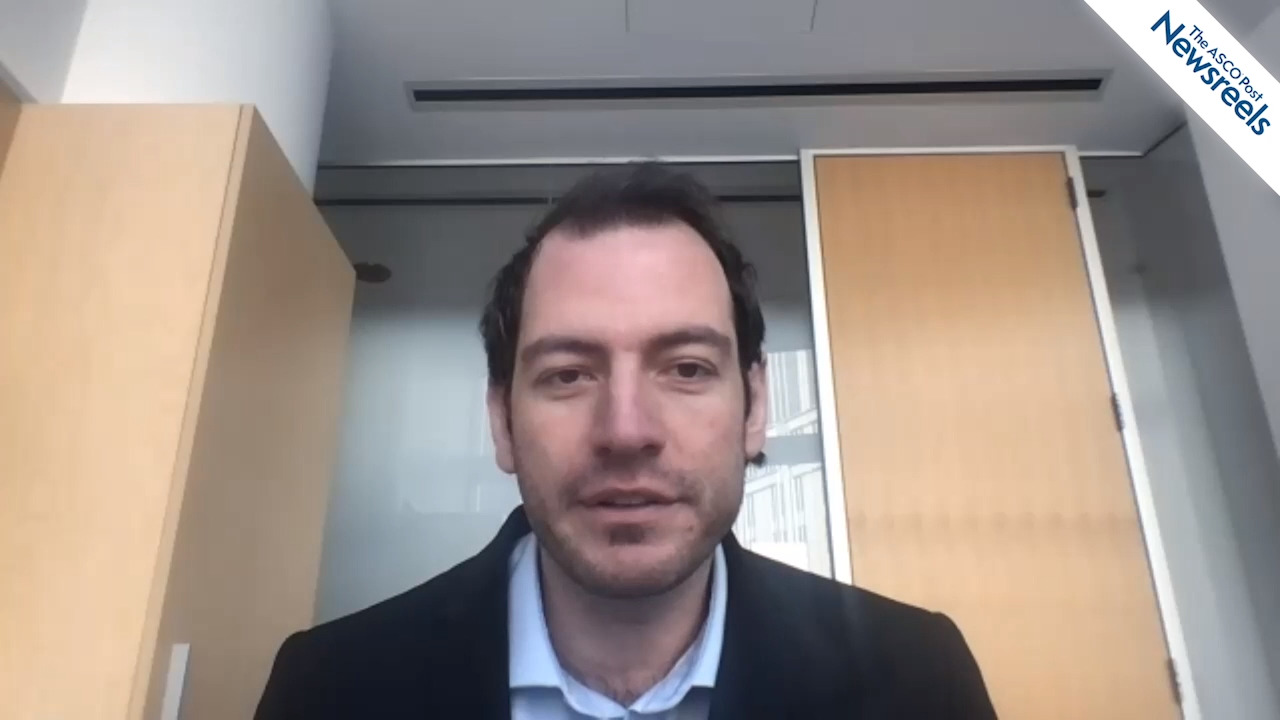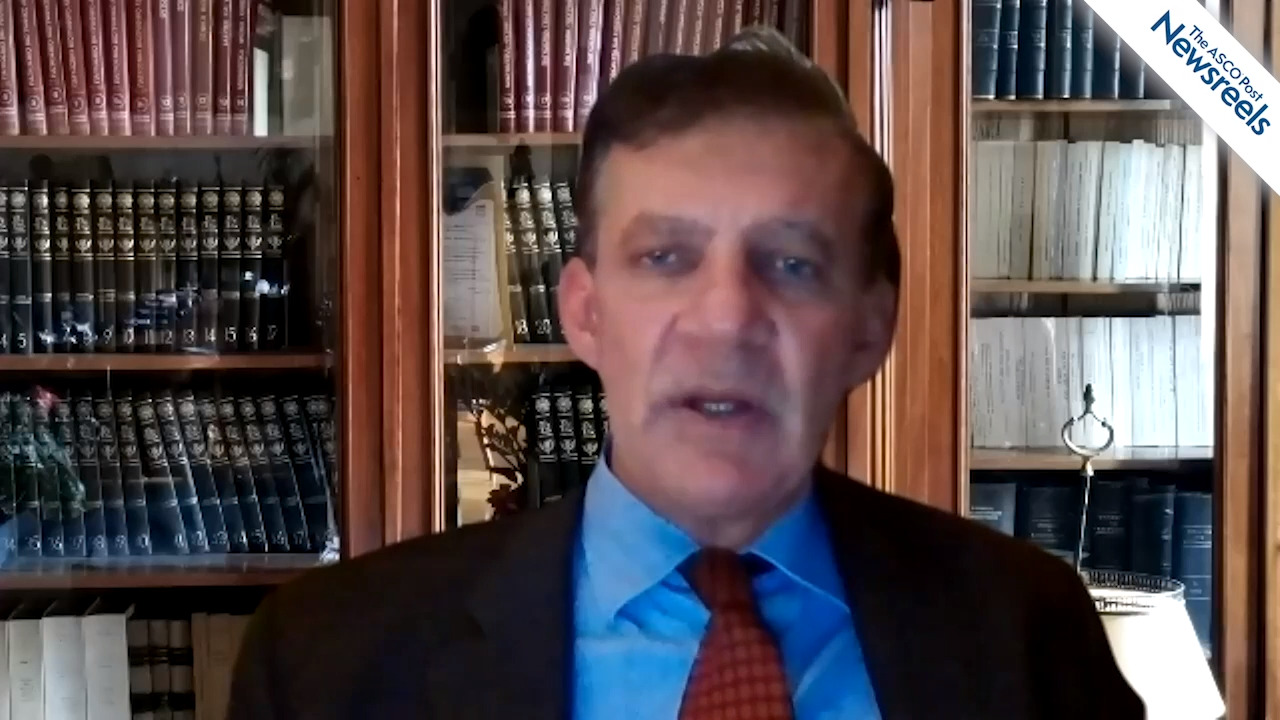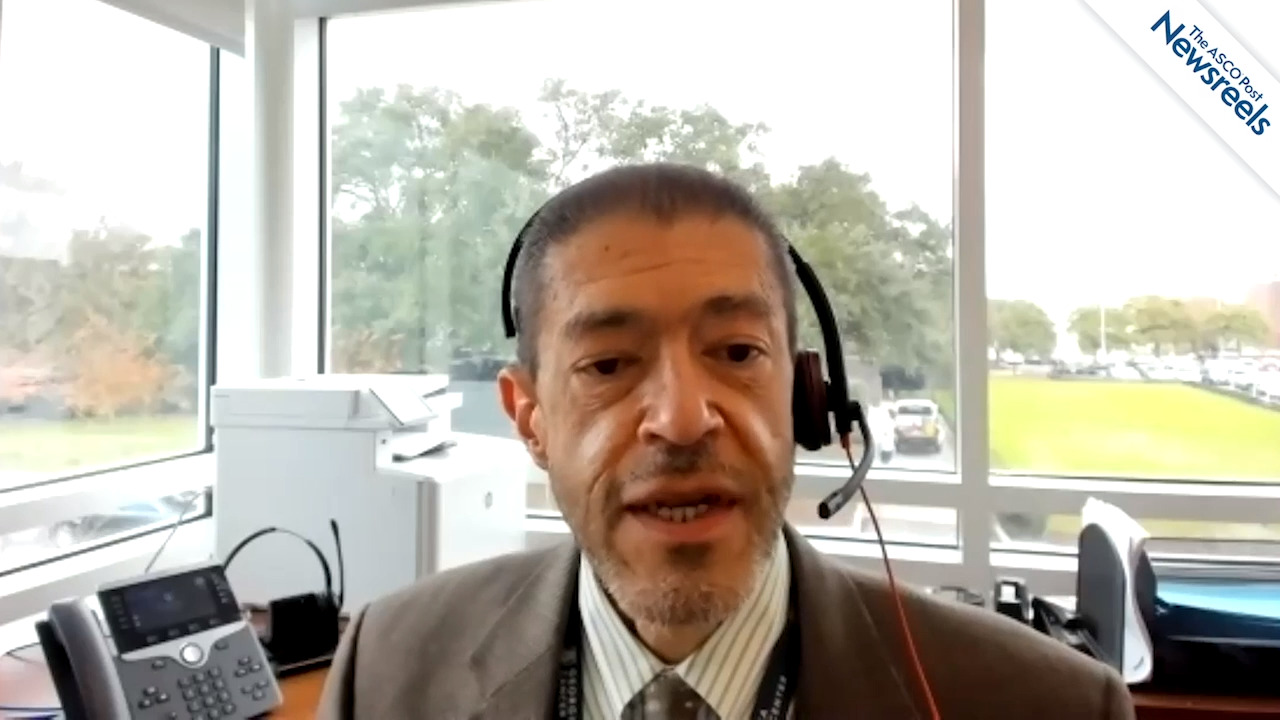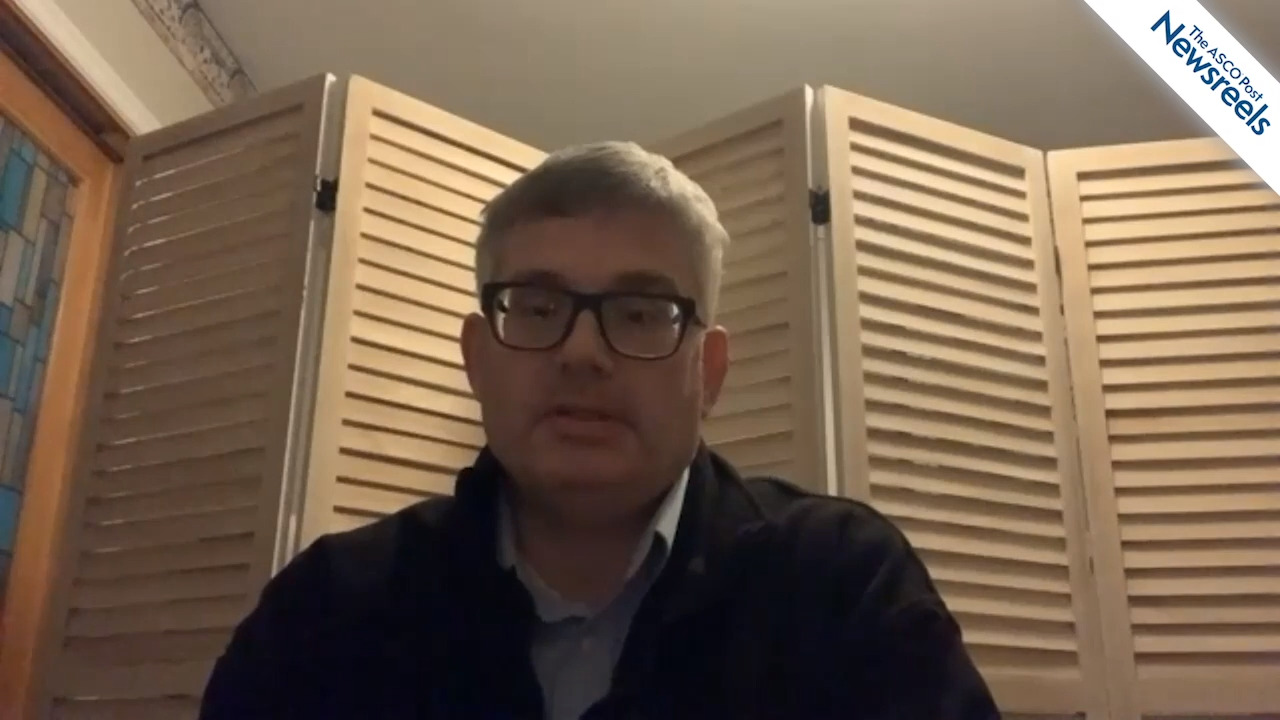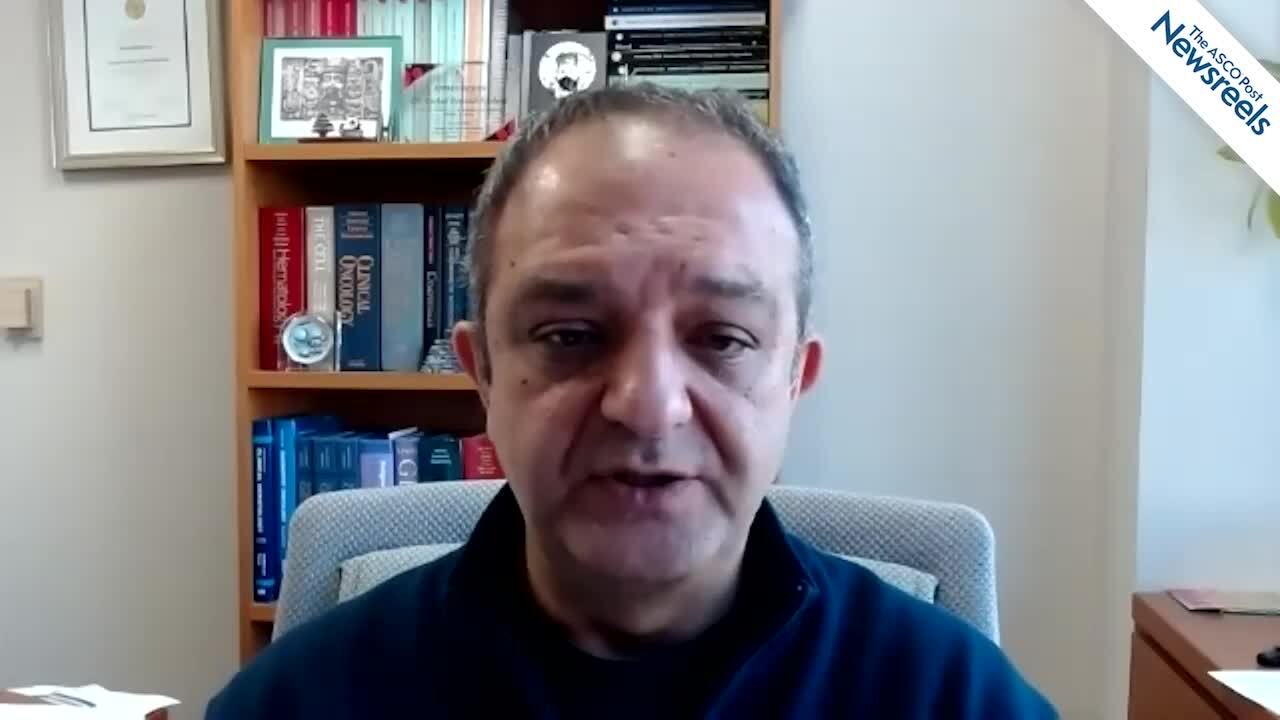Emmanuel Bachy, MD, PhD, on Peripheral T-Cell Lymphoma: Romidepsin Plus CHOP
2020 ASH Annual Meeting & Exposition
Emmanuel Bachy, MD, PhD, of the Hospices Civils de Lyon, discusses the final analysis of a phase III study of adding romidepsin to chemotherapy in patients with previously untreated peripheral T-cell lymphoma. Adding romidepsin did not improve progression-free survival and was associated with high rates of adverse events (Abstract 39).
The ASCO Post Staff
Christian Marinaccio, PhD Candidate, of Northwestern University, describes research he is conducting in the laboratory of John D. Crispino, PhD, which shows the loss of the tumor suppressor gene LKB1/STK11 facilitates progression of myeloproliferative neoplasms to acute myeloid leukemia (Abstract 1).
The ASCO Post Staff
Meletios A. Dimopoulos, MD, of the University of Athens, discusses data from the phase III APOLLO study, which evaluated the use of subcutaneous daratumumab plus pomalidomide and dexamethasone, vs pomalidomide and dexamethasone alone, in patients with relapsed or refractory multiple myeloma (Abstract 412).
The ASCO Post Staff
Jorge E. Cortes, MD, of the Georgia Cancer Center at Augusta University, reviews four important studies of treatment advances in chronic myeloid leukemia (CML): nilotinib vs dasatinib in newly diagnosed disease; final 5-year results from the BFORE trial on bosutinib vs imatinib for chronic phase (CP) CML; data from the OPTIC trial on ponatinib for CP-CML; and a novel class of mutated cancer-related genes associated with the Philadelphia translocation (Abstracts 45, 46, 48, 49).
The ASCO Post Staff
David T. Teachey, MD, of the University of Pennsylvania and Children’s Hospital of Philadelphia, discusses data showing that cranial radiation might be eliminated in most children with T-cell acute lymphoblastic leukemia and that bortezomib may improve survival in children with T-cell lymphoblastic lymphoma (Abstract 266).
The ASCO Post Staff
Farhad Ravandi, MD, of The University of Texas MD Anderson Cancer Center, offers his expert perspective on key treatment studies in acute myeloid leukemia on the use of gilteritinib, consolidation chemotherapy, venetoclax, cladribine, azacitidine, quizartinib, decitabine, and CPX-351 (Session 616 [Abstracts 24- 29]).
